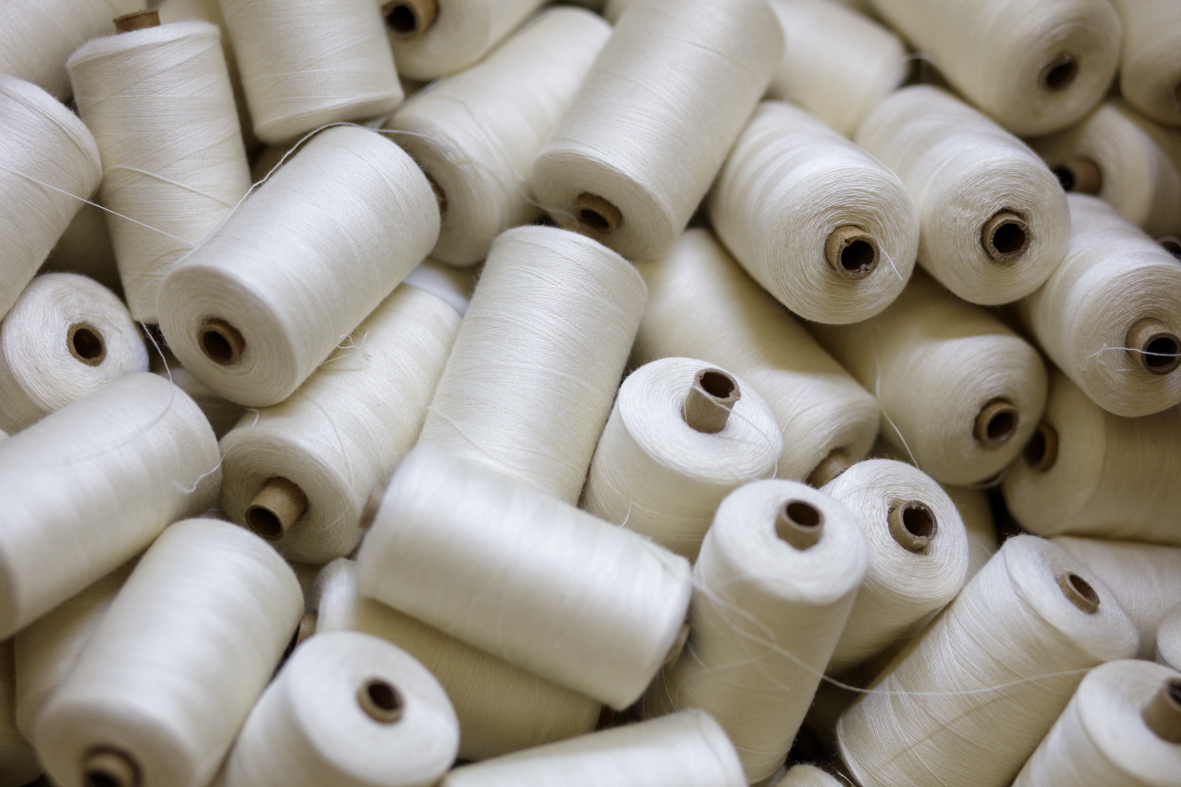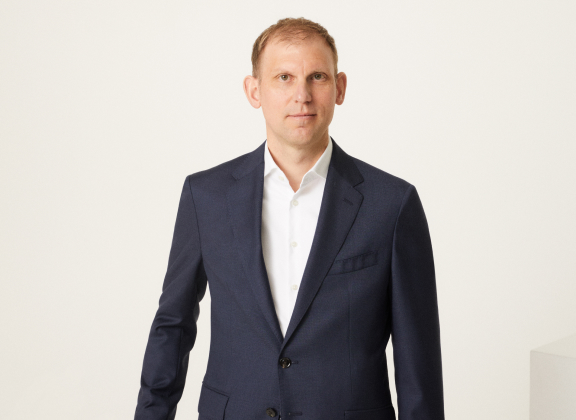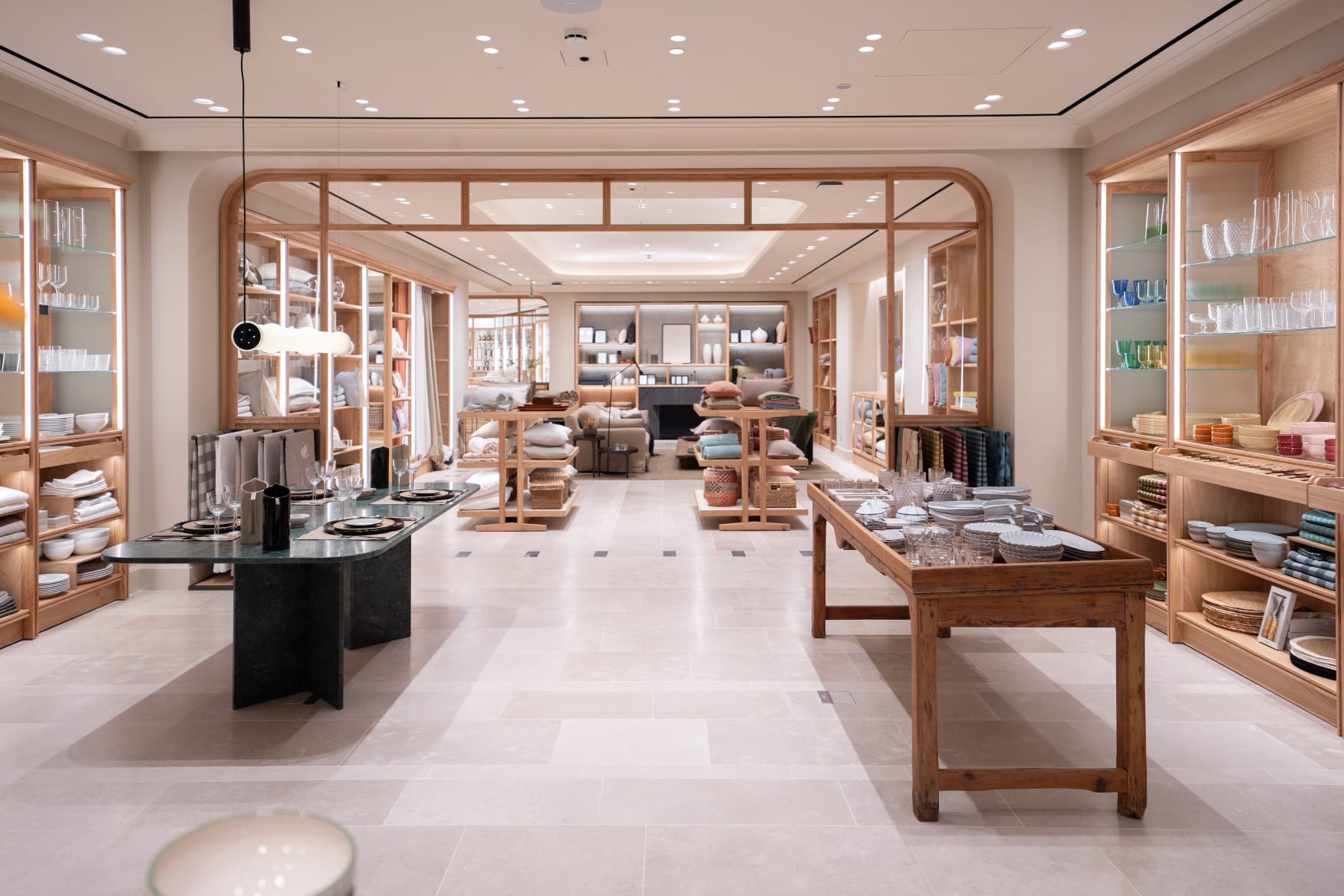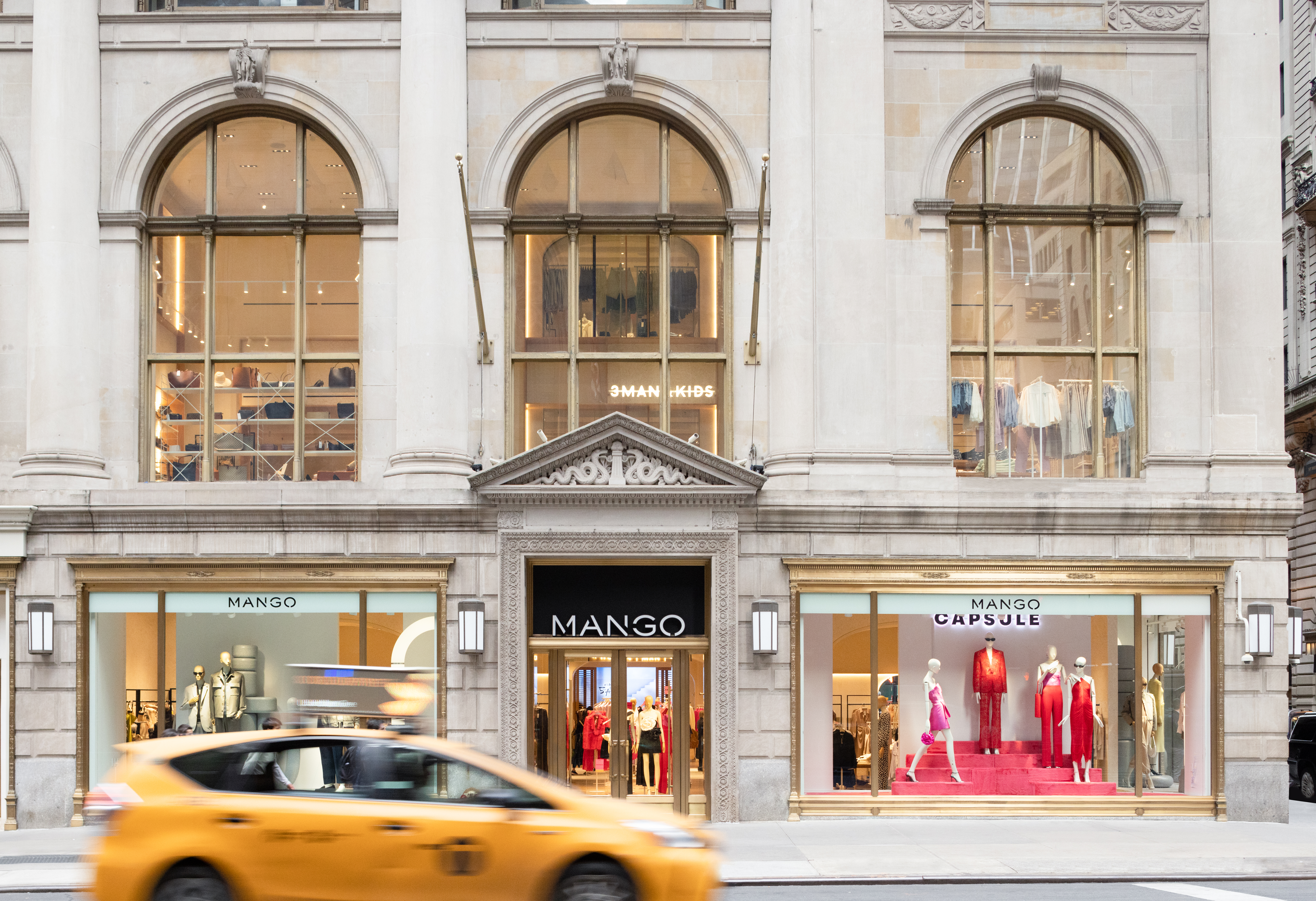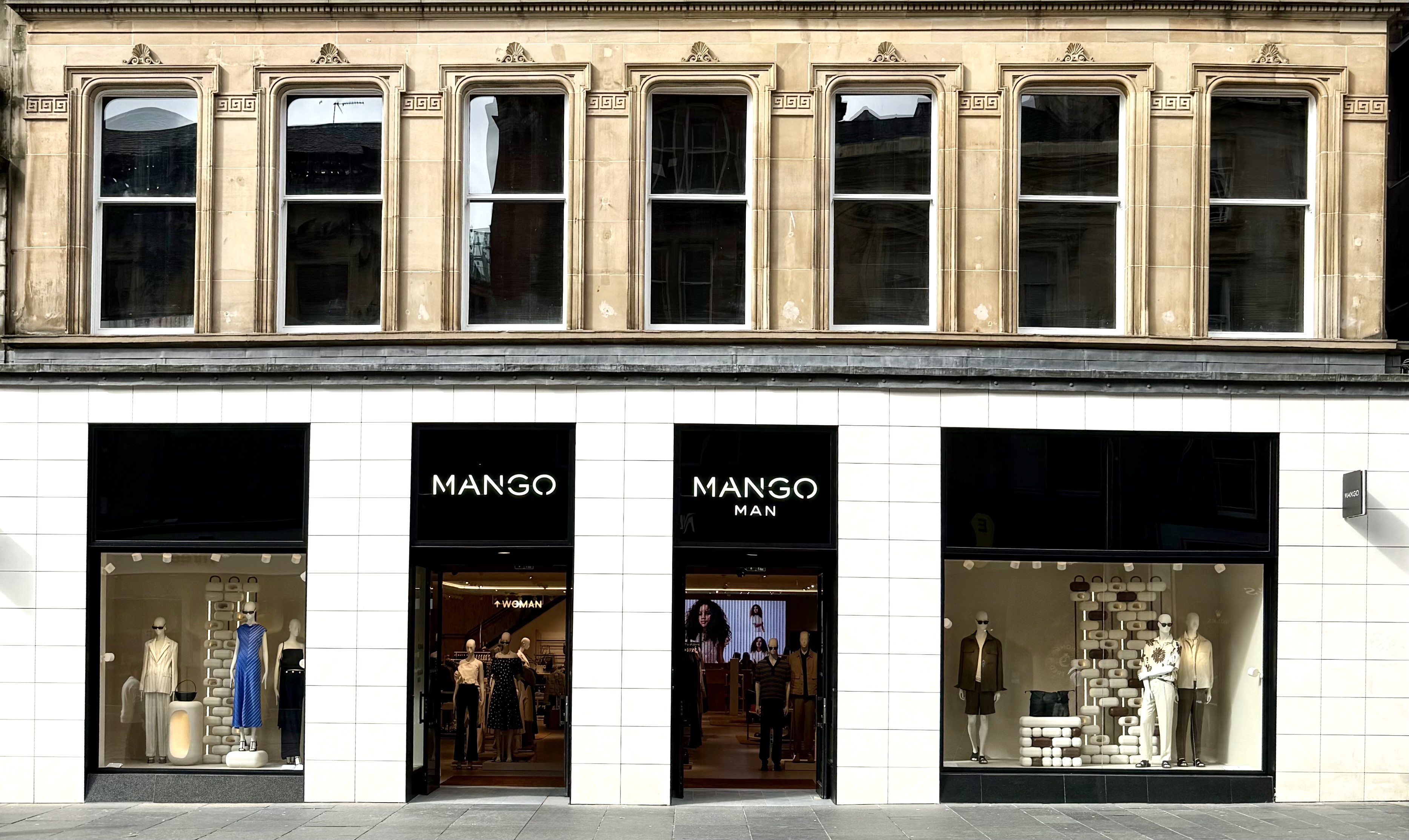Mango brings forward its sustainable targets and doubles the percentage of Committed garments
Mango brings forward its sustainable targets and doubles the percentage of Committed garments
-
The company forecasts that by 2025, 100% of the polyester it uses will be recycled and all cellulose fibres will be of controlled and traceable origin
Garments with sustainable characteristics, labelled Mango Committed, represented 80% of total garments in 2021
Mango signs up to the ZDHC Roadmap to Zero programme and the Canopy Style initiative
Mango is taking one step further in its journey towards environmental and social sustainability, and bringing forward its sustainability targets after achieving that 80% of all the garments it sells now bear the Committed name. In just one year, Mango has almost doubled the percentage of sustainable garments in its total production.
The company, one of the leading groups in the European fashion industry, has reviewed the targets set in early 2020 as part of its sustainability strategic plan and has decided to bring them forward. Specifically, Mango forecasts that 100% of the polyester used will be recycled by 2025, doubling the initial target set for said year. Similarly, the firm also plans that by 2025, 100% of cellulose fibres used will be of controlled origin and traceable, bringing forward its original commitment by five years. In addition, the company is maintaining its goal that 100% of the cotton used will be of sustainable origin by 2025.
“Aware of the environmental impact of our product, and in line with our goals and international commitments, we work garment-by-garment, promoting the use of fibres with a lower environmental impact in our collection. Bringing forward the sustainable fibre targets allows us to move towards a more sustainable fashion future”, explains Toni Ruiz, Mango’s Chief Executive Officer.
In 2021 Mango achieved a 91% use of sustainable cotton and a 59% use of cellulose fibres of controlled origin. Furthermore, 54% of the polyester used was recycled, achieving the initial target four years ahead of time.
The evolution of Mango Committed
Mango makes its commitment to sustainable fashion visible through the Committed label, which includes all Mango garments with a lower environmental impact. In recent years, the company has made a major effort to increase the number of sustainable garments, which in 2021 accounted for 80% of the total collection, well above the 45% figure for 2020.
Committed garments are all those which contain at least 30% of more sustainable fibres (such as organic cotton, recycled cotton, BCI cotton, recycled polyester, recycled wool or TENCEL®, among others) and/or have been manufactured using more sustainable production processes. What is more, like all other Mango items, they are produced in factories that are inspected through social audits and comply with product safety regulations.
Mango’s goal is that all of its garments will be Committed by 2022.
Mango signs up to ZDHS and Canopy Style
In its journey towards sustainability, Mango has signed agreements with various bodies and companies worldwide. Key coalitions it forms part of include the International Accord, the Fashion Pact and the United Nations Fashion Charter for Climate.
In 2021, Mango implemented a new water management strategy to reduce the consumption and increase the efficiency of this resource. Within this context, it has signed up to the ZDHC Roadmap to Zero programme as a “Collaborator”. This initiative will allow to the company to achieve best practices for chemical management in wet processes throughout the production chain, for both clothing and footwear, which will help protect consumers, workers and the environment.
Also, in its commitment to sustainability in all areas of influence and as part of its Sustainability Plan, Mango has also signed up to the Canopy Style initiative, which is committed to protecting forests by ensuring the responsible use of all cellulose materials used in garments, paper and packaging. Consequently, these products will have international certification to prevent illegal logging and the destruction of ecosystems, and will also promote the use of alternative, low-impact, sources of fibre, such as recycled textiles and agricultural waste.
“In line with SDG 17 on partnerships, at Mango we are convinced that collaboration through international initiatives within the textile industry is key to the creation of value and is our way of helping to reduce the environmental impact throughout the industry”, Toni Ruiz adds.
Precisely through such alliances, Mango has signed up to the net zero target for 2050. In its journey to achieve net zero emissions, the company has set itself new intermediate targets. It has committed to reduce its direct emissions by 80%, as well as those generated by the Scope 1 and 2 energy it consumes, by 2030. It has also committed to reduce by 35% the Scope 3 emission it produces in its supply chain by the same year.
Publication of Tier 1 and Tier 2 factories
Finally, in its commitment towards the value chain and transparency, in December Mango published a new list of factories in its global supply chain. As well as updating the list of Tier 1 factories it published in 2020, Mango has included for the first time the list of Tier 2 factories, related to production processes.
After being the first major company in the Spanish fashion sector to publish a list of its production factories, this year the company has set itself the goal to also publish a list of Tier 3 factories, related to suppliers of raw materials, such as fabrics and fittings.
Mango’s sustainability strategy
Mango sees sustainability as a journey the fashion industry has to make in order to achieve a more just society, and to reduce its environmental and social impact on society.
The company, which reviews its Sustainability Strategic Plan every year, organises its sustainability strategy into three key concepts, which in turn reflect the values of the company: Committed to the Planet, Committed to the Community and Committed to the Value Chain.
Mango, one of the leading international fashion groups, is a global company with design and creativity at the heart of its business model and a strategy based on constant innovation, the pursuit of sustainability and a complete ecosystem of channels and partners. Founded in Barcelona in 1984, the company closed 2024 with a turnover of over 3.3 billion euros, with a third of its business coming from the online channel and a presence in more than 120 markets. More information at mangofashiongroup.com.
